WTI Road Ecologists Engage with MSU Students
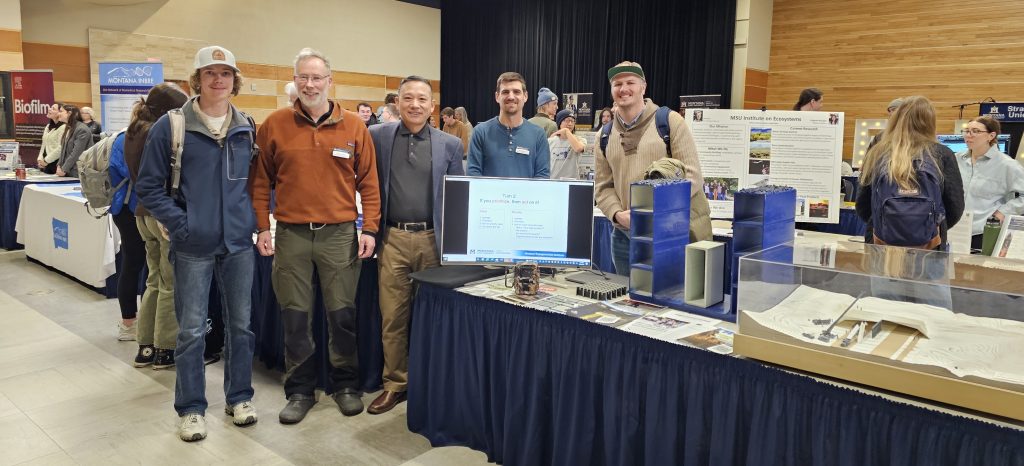
Last month, WTI road ecologists Marcel Huijser and Mat Bell participated in Montana State University’s (MSU) inaugural Undergraduate Research Fair, where they introduced students to WTI and research opportunities within the road ecology group. They hope that it will inspire students to bring their energy and creativity to collaborative WTI projects. “At WTI, undergraduate researchers […]
Rob Ament Retires After 18 Years with WTI
We are both sad and honored to announce that Rob Ament has retired after 18 years with WTI. Rob is one of the early pioneers of our Road Ecology program and, as Program Manager, has grown it into the world-renowned focus area it is today. Having spent his childhood exploring the Mississippi River, Rob developed his love of ecology […]
New Study Identifies Potential Animal Highway Crossing Locations Across Western U.S.
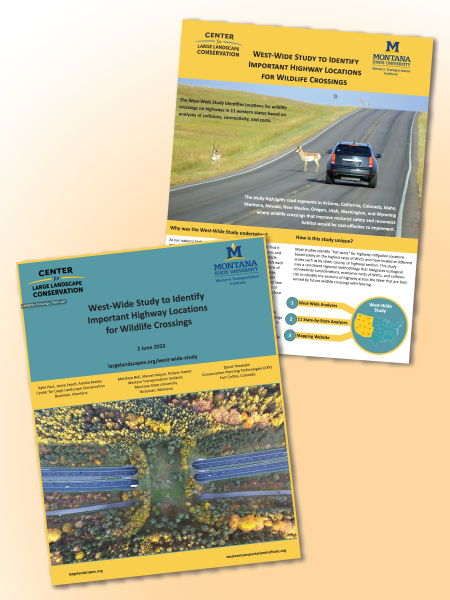
Increasingly busy highways and fragmented habitats have boosted the number of wildlife-vehicle collisions (WVCs) in the U.S. each year. Dangerous to both animals and humans, these collisions kill more than one million large mammals and hundreds of humans per year and cause tens of thousands of injuries. To begin addressing these collisions, the nonprofit Center […]
MSU Graduate Investigates Presence of Monarch Butterflies and Other Pollinators in Roadside Habitats
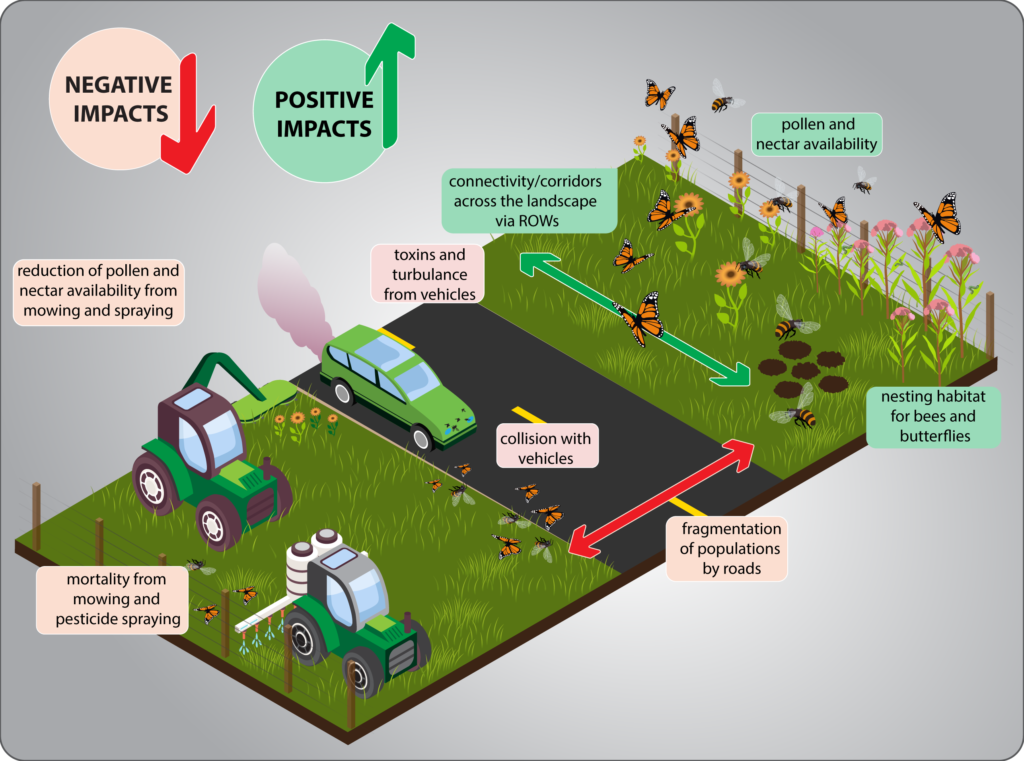
Monarch butterflies (Danaus plexippus), the striking and iconic orange and black insects of postcards and motivational posters, have been in population decline since the 1980s and Thomas Meinzen, a master’s student in Montana State University’s Ecology Department, turned to a largely overlooked environment to save them. His thesis, Bees and Butterflies in Roadside Habitats: Identifying […]
International Transportation Pooled Fund Study Published: Findings Will Help Reduce Wildlife Collisions, Increase Habitat Connectivity, and Implement Cost Effective Solutions
Resources from a first-of-its-kind road ecology study are now available on the web through the Western Transportation Institute at Montana State University (MSU). The Wildlife Vehicle Collision (WVC) Reduction and Habitat Connectivity project, a Transportation Pooled Fund Study, was developed through an international partnership of fourteen state departments of transportation (DOTs), Canadian transportation agencies, and […]
IN THE NEWS: WTI Road Ecologists Interviewed for University of Montana Podcast, Highlighted in Bozeman Daily Chronicle
Dr. Marcel Huijser Interviewed on A New Angle Podcast WTI’s Dr. Marcel Huijser shared his story during an interview on A New Angle, a UM podcast “about cool people doing awesome things in and around Montana.” He discussed his initial interest in nature, his move to the U.S., and his entry into the field of […]
IN THE NEWS: GoGallatin Program Manager on Potential for Ride-Share Partnership, WTI Road Ecology Manager on Benefits of Wildlife Crossings
GoGallatin Program Manager Highlighted in Mass Transit Magazine Earlier this month, WTI Research Associate Matthew Madsen discussed the role of trip planning in a Mass Transit Magazine article about Whitefish, Montana’s plan to reduce transportation emissions. Madsen, who is also the GoGallatin Program Manager, presented to the City on a potential partnership with the trip […]
IN THE NEWS: Montana State University Highlights Two Decades of Wildlife Crossings Research
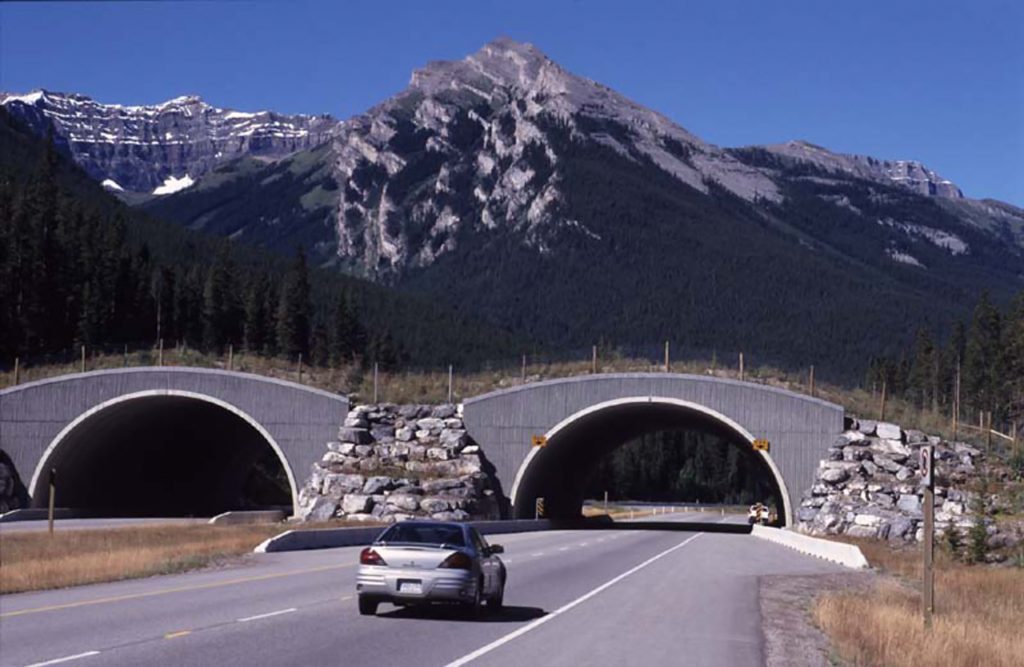
In a follow-up to last week’s New York Times article, Montana State University News published a feature article summarizing WTI’s long history of researching and advancing wildlife crossing structures. Starting with the first report to Congress on wildlife vehicle collisions in 2006, the article also highlights WTI’s long-term research on the effectiveness of wildlife crossing […]
ON THE AIR: Road Ecologist Highlights Wildlife Crossing Structures Advancements
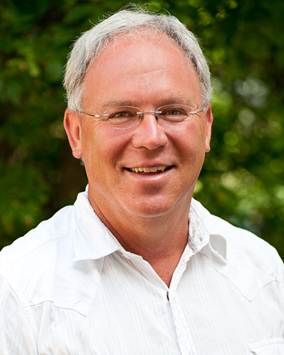
On February 25, Road Ecology Program Manager Rob Ament was a guest on Top of Mind with Julie Rose, a BYU Radio program. For a feature segment on wildlife crossings, Rob discussed how crossing structures are designed, how they make roads safer for both animals and motorists, and where the newest structures are being built, […]
INTERNATIONAL OUTREACH: Researchers Highlight Mobility Issues at UNESCO Conference
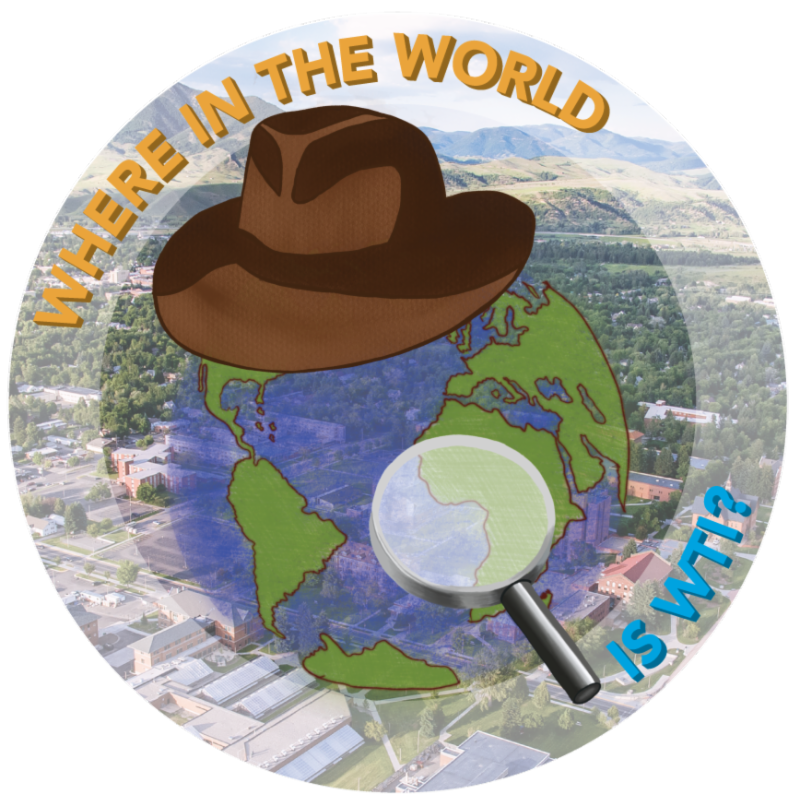
In 2015, WTI’s Small Urban and Rural Livability Center and West Region Transportation Workforce Center embarked on a collaborative project with partners from the Russian University of Transport (RUT), the Russian Federation’s largest university focused on transportation science and engineering. The project assessed and shared education and training resources to foster accessible transit services in […]
